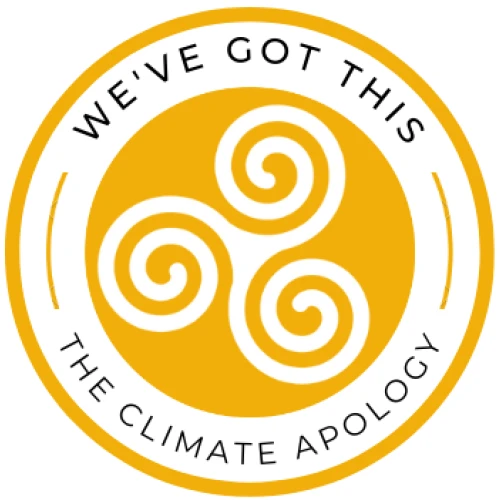When I take a moment to heed this shock, I want to sincerely apologise to my kids. Most of my mistakes were small, at the time insignificant, choices. But with more thought, I could just have easily made choices with far better consequences for the environment. After all, it really isn’t that difficult to reduce meat. And I have rarely taken the time to discover all the nooks and crannies of the town where I was living- I didn’t need to fly for a weekend break to a foreign place. And more often than not, my dependency on my car reflects laziness than necessity.
And so here is my apology to my kids and the other young people in my life for the serious, negative consequences of my actions, starting more than 30 years ago.
In 1988, while at uni, we had to do a tour of our philosophy professor’s self-sufficient farm. He was too sharp to be the butt of our student jokes, but was so far removed from our cool uni lifestyle that he warranted no attention. He seemed ancient to us. Tall and wiry, smelling of earth, he wore old, mended clothes, knitted socks, and had enormous, gnarled hands which didn’t fit with his day job.
His farm was on the outskirts of sprawling Sydney. It took forever to get there and was miles from any hint of civilisation, like a pub. The tour started in his house – functional, dimly lit, an overwhelming feeling of brown. It contrasted starkly to the interior decoration aspirations of everyone I knew. He explained his electricity system driven by his composted waste, which I knew was admirable but just seemed to be a whole lot of unnecessary work and bad smells.
The tour moved outside, past the chickens and enormous vegie garden, particularly impressive to me as a child of the city supermarket. What I still remember most clearly were the charming, meandering paths, bordered with grasses and flowers and overhung by branches. Turning a corner, we’d come upon a quiet place to sit, with playful statues glimpsed between the trees. It was so very quiet and peaceful, and unusually intimate for the normally flat, open Australian bushland. And all the while, he continued to quietly explain his philosophy of living harmoniously with nature.
We left after the allotted time and scurried back to our student flats and favourite bars, duly wrote up the required essay on sustainable living and promptly forgot about his mission. I was impressed by his commitment and effort, but felt zero connection to the overwhelming brownness of it all. Although a young social work student, I had no appreciation for how climate change would become the most important social justice of all time. And little interest in – and no understanding of – the already well-documented science of climate change. That was something for the science students on the upper end of campus.
And I am so sorry for that. I think now that I was ignorant and arrogant, and my actions were stupid.
I am sorry that I didn’t take the time to think more seriously about the information he gave us. That I didn’t make the effort to find a connection between it and my life at the time.
There are valid reasons why I didn’t. I was just following the path I was expected to follow. We all were – I’ll refrain from using the sheep analogy. I lived in the centre of Sydney, not on a farm. And I was finally independent and relishing big city life in Sydney. It was my time to be in the sun. To spend, to have fun, to travel.
But that’s a lot of ‘I’s. And there have been a lot more ‘I’s since then that I wish had been tempered with regard for what the young people in my life are inheriting.
Making amends by taking the steps to live more closely within the planet’s resources will be an ongoing individual and family project. It won’t be linear. And it’s sometimes annoying and inconvenient not to mindlessly consume as I used to.
But, taking these steps with my kids – changing how we consume as a social unit – gives my individual actions a lot of weight. What I do matters an awful lot to them and their current perspectives of their future – and their capacity to contribute to that future. And suddenly the equation is not my individual action vs. climate change – David vs. Goliath. It becomes my kids, my family, then my extended family, perhaps my social circle, my colleagues and my neighbourhood vs. climate change. This is an empowering and motivating perspective.

Louise Rapaud
Previous Project